HVAC preventative maintenance and efficiency solutions provider ECM Technologies was recently named the “Most Innovative Business of the Year” at the 2025 Champions of Change Awards, according to a news release. The program recognizes Arizona business leaders and organizations taking steps to make a positive impact on the state through innovative thinking and philanthropy.
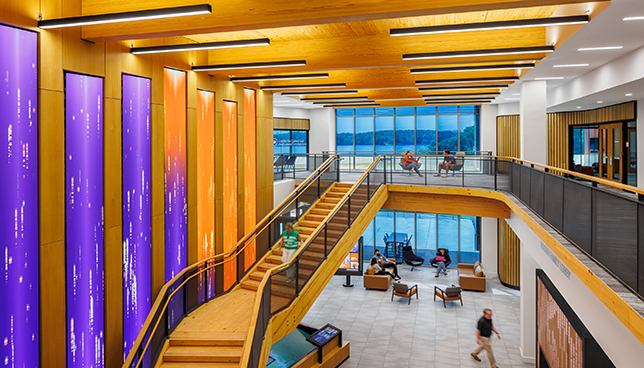
Clemson University’s Nieri Family Alumni and Visitors Center serves as the new front door to campus, anchoring the Tiger experience through each step in the student journey.
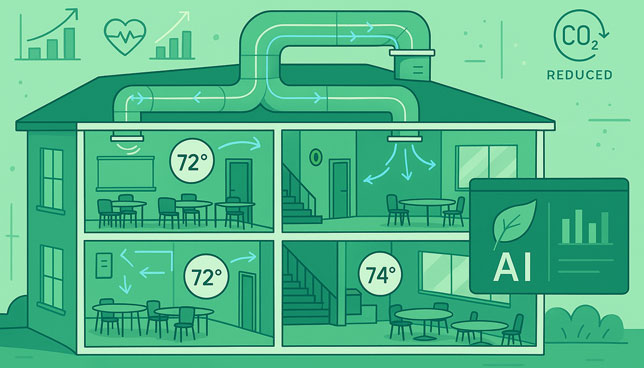
Heating and cooling systems are just one of the many new ways that AI can be integrated into schools. According to a new study from Schneider Electric's Sustainability Research Institute, AI-powered HVAC systems in schools can lead to significant carbon emissions savings.
Exhale Fans recently announced the launch of Gen. 5 of its flagship HVAC delivery product, the world’s only bladeless ceiling fan, according to a news release. The fan provides users with a 10% savings on HVAC energy costs and requires no renovations to current systems to install.
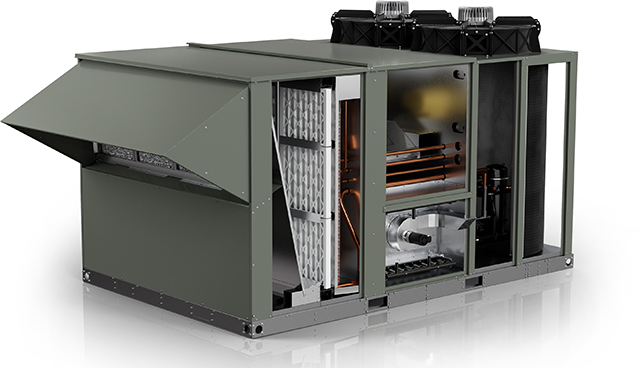
Air movement, control, and conditioning solutions provider Greenheck recently launched a new line of rooftop units that merge the conveniences of traditional rooftop ventilators and dedicated outdoor air systems, according to a news release. The Model RT controls temperature and humidity for indoor comfort.
Air movement, control, conditioning, and distribution equipment solutions provider Greenheck recently announced that it has been awarded a Sourcewell cooperative purchasing contract, according to a news release. The HVAC Systems contract will allow Greenheck the opportunity to expand opportunities in government procurement and other public agencies in North America.
Greenheck recently released a new energy recovery ventilator, the ERVi, designed for small indoor spaces like basements and mechanical rooms, according to a news release. The hardware can fit through a 30-inch door and be mounted on the ceiling for retrofit and decarbonization projects.
HVAC and indoor-air-quality solutions provider RenewAire recently launched the new HE+DX Coil, a duct-mounted system for the company’s existing HE07 and HE10 energy recovery ventilators (ERVs).
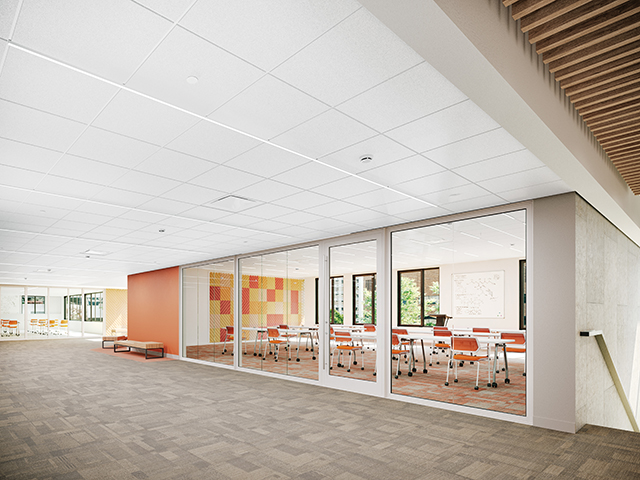
Schools nationwide—especially those in historically cool climates now undergoing elevated heat events—face a challenging cycle when it comes to adapting to climate-change-driven temperature extremes during the school year. Often if heating, ventilation, and air conditioning (HVAC) systems even exist, they are nearing end of life and operating less efficiently. Facing limited budgets, schools often opt for repairs over equipment replacement even though repairs can be costly and newer systems are designed for more efficient, sustainable operation offering long-term energy and cost savings.
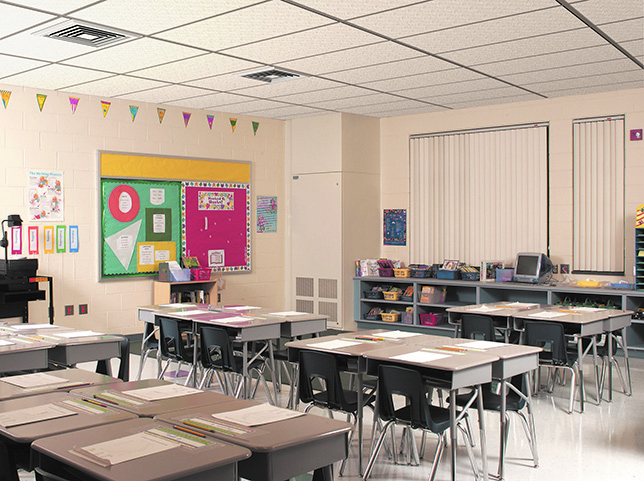
Spring is a wonderful time of year. The days are longer, the weather begins to warm up, and everything is in bloom. However, for many people, this also means seasonal allergies will set in. The Centers for Disease Control and Prevention estimates that approximately 25% of adults and about 20% of children will suffer from seasonal allergies.
McMaster University is using technology to better control and manage its legacy thermal systems and create smarter buildings. Carmichael Engineering Ltd., a Canadian systems integrator, worked closely with ABB Canada’s leading experts and its highly adaptable smart building platform, ABB Cylon®, to improve energy efficiency, enhance user adaptability, and leverage innovative technologies in locations across campus.
The Burlingame School District in Burlingame, Calif., recently announced the upcoming launch of its Energy Infrastructure and Sustainability Program Phase II, according to a news release. Construction on HVAC modernizations and solar structures will begin early this year and is scheduled for completion before the beginning of the 2024–25 school year.
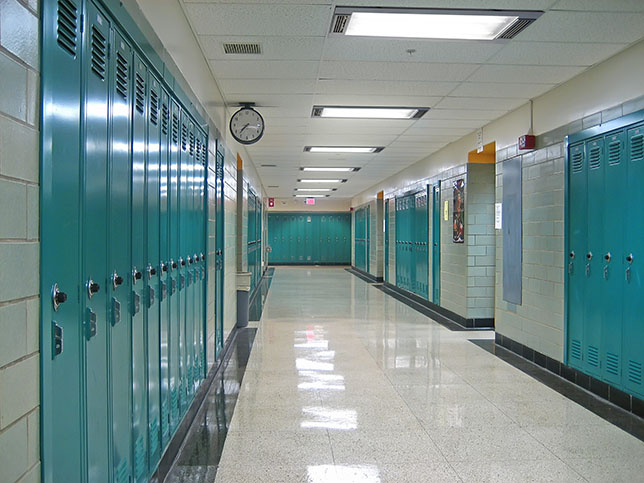
HVAC indoor air quality company Modine has debuted the VidaShield UV24 Active Air Disinfection System for the K–12 school market. The product line combines UV-C light irradiation with air circulating fans and an optional ceiling light, the company said.
There is a growing level of both interest and requirements to improving Indoor Air Quality (IAQ) through improved ventilation, temperature and humidity control, and filtration to improve the health of students and teachers in K–12 schools. Aging equipment often is not designed to meet these requirements, prompting replacement. But this replacement comes with an added benefit—that being significantly improved efficiency.
Extreme heat is becoming more and more of a problem during the early and late weeks of the school year. To prevent hot temperatures and poor air quality from being an issue for K–12 facilities, it’s important for school leaders to be proactive in their preparation.

The importance of HVAC units in schools was brought to the forefront when the COVID-19 pandemic struck in the early parts of 2020. The federal government also took notice as they issued approximately $190 billion in COVID relief funds through the Elementary and Secondary School Emergency Relief Fund (ESSER).
Greenheck, a national supplier of air movement, air control, and air conditioning equipment, recently introduced its new AER direct drive configurable condenser fan, according to a press release.

The importance of HVAC units in schools was brought to the forefront when the COVID-19 pandemic struck in the early parts of 2020. While vaccines became one option for combating the virus, the need for increased ventilation and filtration became an area of focus for many school districts.
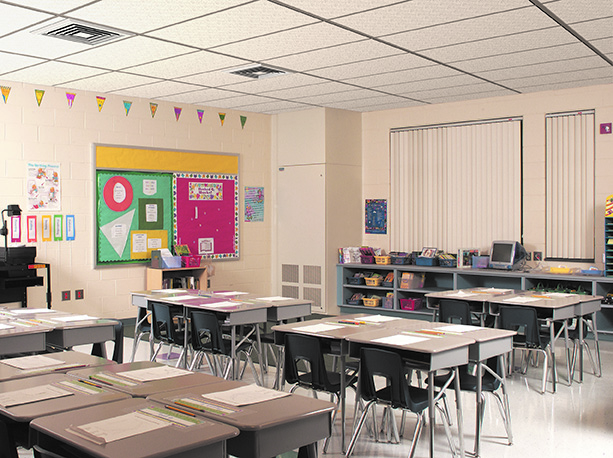
In the pre-pandemic world, IAQ was often recognized as a best practice for K–12 facilities. While its importance was never in question, there wasn’t much of an emphasis on the vital role it plays in our children’s lives and development. It didn’t make the evening news or create the buzz it does now. The COVID-19 pandemic put a spotlight on the necessity of having clean, comfortable air.

In this episode of Schools in Focus, we’ll be talking about indoor air quality in schools. Our guests are Mike Wolf, Director of Regulatory Business Development, and Tyler Mancl, Principal Application Engineer, both with Greenheck.
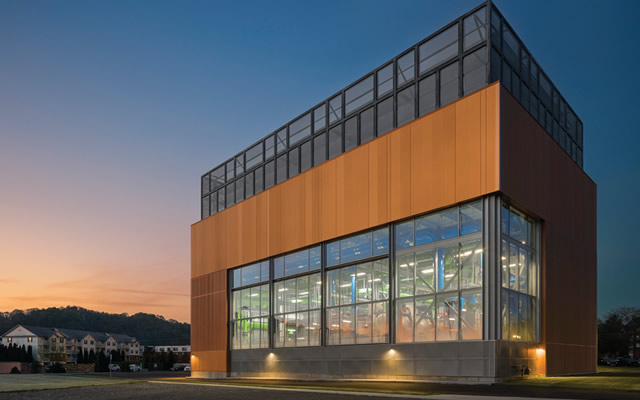
Ohio University in Athens, Ohio, recently completed construction on a third chilled water plant for its campus.
For the first time ever, the main gymnasium and cafeteria at Fort Dodge Senior High School in Fort Dodge, Iowa, will have air conditioning when the next school year begins this fall.
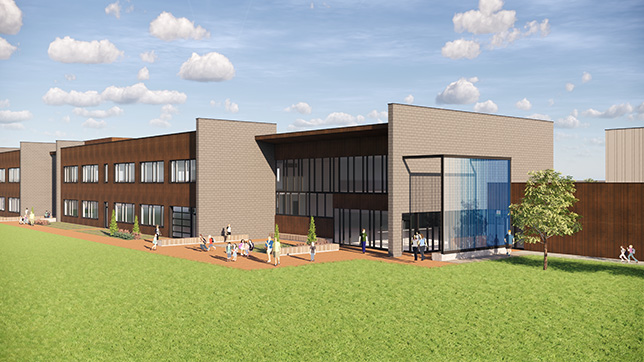
High-performing, energy-efficient school facilities can serve a foundational role in uplifting students, staff and the greater community over the long term. The good news is that the solution for some facilities—depending on size, location and available resources—might be born out of the strategic implementation of a concept originating nearly 50 years ago: Passive House.
A $1.4 million HVAC upgrade at Missouri's East Central College, paid for by federal COVID-relief funds, is expected to mitigate the transmission of viruses in several campus buildings. The work was performed by Johnson Controls as part of its "OpenBlue" healthy buildings program.
It is a well-known fact that the environment affects human performance, both physically and mentally. This is especially true for students, who are impacted by the quality of air in their learning environment.
Mitsubishi Electric Trane HVAC US (METUS), a joint venture between Trane Technologies PLC and Mitsubishi Electric US, Inc., announced recently that it has launched an upgrade for its Building Connect+ platform.
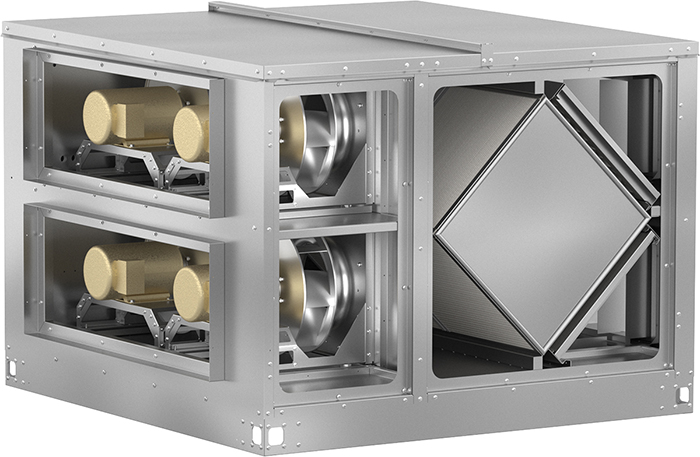
Air movement, control and conditioning solutions company Greenheck announced this week that it has redesigned its Energy Core Ventilator (ECV) line.
Columbine High School, located in Littleton, Colo., held a ribbon-cutting ceremony recently for a series of renovations to the campus, including a new entrance.
The results of a new survey from JLL have revealed that campus cleanliness and indoor air quality now rank among the top factors in college selection. JLL, a Fortune 200 commercial real estate and professional services firm, surveyed about 500 parents of tenth- through twelfth-grade students about their priorities while considering higher education destinations.

Maintaining indoor air quality has gained renewed importance as K–12 students around the country prepare to return to in-person learning full time. It’s one of the timeliest, most important methods of keeping learning environments safe as the COVID pandemic winds down. And the more we learn, the more we refine and revise what we thought we knew. Our guest is Scott Huffmaster, the commercial HVAC leader for indoor air quality for North America for Trane Technologies, Inc. This episode is sponsored by Trane.